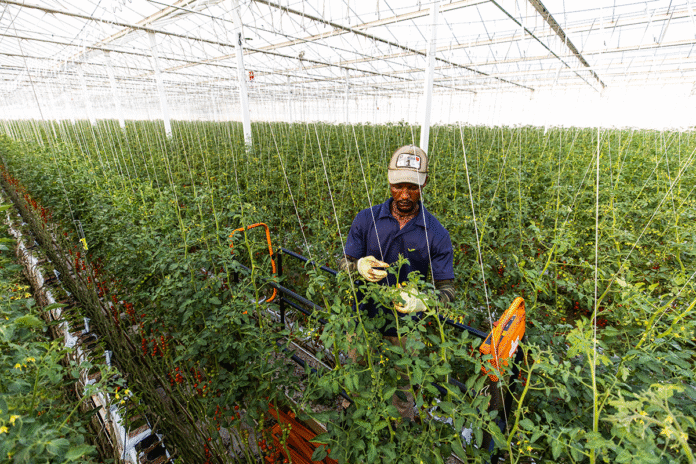Oman’s agriculture sector is expanding through the model fields initiative, which aims to improve productivity and sustainability. Over the past two seasons, the Ministry of Agriculture, Fisheries and Water Resources approved more than 21,000 date palm seedlings for planting across 200 acres. Additionally, over 100,000 fruit seedlings covering 700 acres were distributed to eligible farmers in multiple governorates. The model fields project emphasizes modern agricultural techniques and high-quality varieties to strengthen food security.
The ministry seeks to establish model fields to increase production efficiency and introduce improved varieties of fruit and date palms. By doing so, authorities hope to provide technical guidance to farmers, enhance incomes, and support Oman Vision 2040. Moreover, these initiatives encourage the adoption of advanced technologies in commercial agriculture.
Engineer Yahya bin Hamdan Al Saadi, Head of Horticultural Crops Department, stated that the ministry supports farmers through field visits, inspections, workshops, and lectures. In coordination with the Development Bank, the ministry also provides incentives and financing for model field projects. Furthermore, advertisements on the Tatweer platform help identify sites for date palm and fruit tree cultivation under the usufruct system.
The ministry collaborates with private companies and the Agricultural and Fisheries Development Fund to support the palm and fruit tree sector. Under Ministerial Resolution No. 228/2024, farmers benefit from symbolic prices when accessing these seedlings. Model fields receive date palm and fruit tree seedlings produced by the Tissue Culture Research Center in Jamah and other agricultural research departments. These centers propagate disease-free, high-quality seedlings to support national agriculture.
Model fields focus on high-quality and productive varieties. Date palms include Fardh, Khalas, Bonarnja, Barni Majhool, and Fuhol. Fruit seedlings include Omani lemons, Adalia lemons, mangoes, figs, Mustafel, and quince. The initiative aims to achieve self-sufficiency for targeted crops, provide additional income, and train farmers to manage sustainable fields.
By linking research, technology, and farmer support, model fields strengthen Oman’s agricultural sector and ensure a sustainable supply of local produce. These efforts mark a decisive step toward improved food security and long-term economic benefits for farmers and communities alike.


